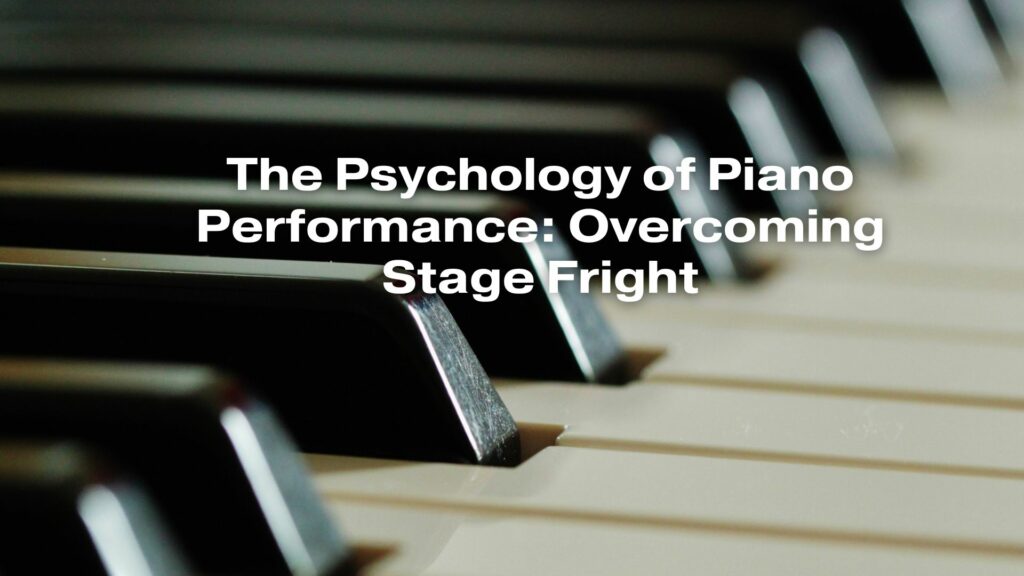Stage fright, or performance anxiety, is a common and often overwhelming challenge for pianists and musicians of all levels. The fear of performing in front of an audience can hinder one’s ability to showcase their talent effectively. In this article, we’ll explore the psychology of piano performance and provide strategies for overcoming stage fright.
Understanding Stage Fright:
- Stage fright is a natural response to the stress of performing in front of an audience. It can manifest as nervousness, anxiety, or even panic. Understanding the psychological and physiological aspects of stage fright is the first step in addressing it.
Causes of Stage Fright:
- Fear of Judgment: Musicians often fear being judged by the audience, which can lead to self-doubt and anxiety.
- Perfectionism: Striving for perfection can increase anxiety, as perfection is rarely attainable in live performances.
- Negative Self-Talk: Negative self-talk, or the inner critic, can amplify fear and anxiety.
- Physical Symptoms: Stage fright can manifest physically, causing trembling hands, sweaty palms, and a racing heart, further intensifying anxiety.
Strategies for Overcoming Stage Fright:
1. Preparation and Practice:
- Thoroughly prepare for your performance. The more confident you are in your abilities, the less likely you are to experience stage fright.
2. Positive Visualization:
- Practice positive visualization techniques. Imagine yourself performing confidently and flawlessly in front of an appreciative audience.
3. Breathing and Relaxation:
- Deep breathing and relaxation exercises can help manage anxiety. Incorporate these techniques into your pre-performance routine to calm your nerves.
4. Reframe Negative Thoughts:
- Challenge and reframe negative thoughts. Replace self-doubt with positive affirmations and realistic self-talk.
5. Gradual Exposure:
- Gradually expose yourself to performance situations. Start with smaller, more informal settings, like playing for friends or family, before moving to larger audiences.
6. Familiarity with the Venue:
- Familiarize yourself with the performance venue. Practice on the actual stage if possible to reduce the element of the unknown.
7. Seek Professional Help:
- If stage fright is severely impacting your ability to perform, consider seeking the assistance of a therapist or counselor who specializes in performance anxiety.
8. Accept Imperfection:
- Recognize that perfection is not the goal. Mistakes happen, even to the most accomplished musicians. Embrace imperfection as part of the live performance experience.
9. Focus on the Music:
- Shift your focus from yourself to the music. Concentrate on conveying the emotion and message of the piece rather than worrying about the audience’s judgment.
10. Perform Regularly:
- The more you perform, the more accustomed you become to the experience. Regular performances can desensitize you to stage fright.
11. Support System:
- Surround yourself with a supportive network of friends, family, and fellow musicians who understand and empathize with the challenges of stage fright.
In conclusion, the psychology of piano performance, particularly overcoming stage fright, is a journey of self-discovery and resilience. While stage fright is a common experience, with dedication and the right strategies, it can be managed and even transformed into a source of motivation and empowerment. Remember that the audience is there to appreciate and enjoy your music, and by focusing on the joy of playing, you can overcome the psychological hurdles that often come with performing.

